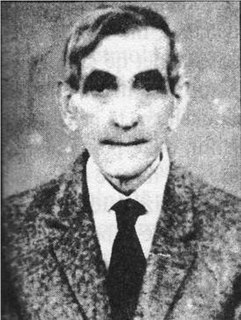 W
WFrang Bardhi was an Albanian Catholic bishop and writer. Bardhi is best known as an author of the early eras of Albanian literature. He served as Bishop of Sapë (1635–1644).
 W
WShaban Demiraj (1920–2014) was an Albanian albanologist, linguist, professor at the University of Tirana from 1972-1990, and chairman of the Academy of Sciences of Albania during the period of 1993-1997.
 W
WTahir Nasuf Dizdari (1900–1972) was an Albanian orientalist, folklorist, and scholar. He was the main orientalist in Albania, and contributed in identifying and studying oriental words borrowed from the Albanian language.
 W
WMahir Domi (1915–2000) was an Albanian linguist, professor, and academic. He was one of the organizers and main participants of the Albanian Orthography Congress, and member of the follow up commission responsible for deploying the orthographic rules of the Standard Albanian language.
 W
WAndrokli Kostallari (1922–1992) was an Albanian linguist and scholar. He was one of the central figures of the Albanian language studies and founding member and director of the Albanian Institute of History and Linguistics, and later Institute of Linguistics and Literature. Kostallari is remembered for being one of the key expert contributor to the present Albanian language orthography established by the Congress of Orthography of 1972.
 W
WKostandin Nelko, known as Kostandin Kristoforidhi, was an Albanian translator and scholar. He is mostly known for having translated the New Testament into Albanian for the first time in the Gheg Albanian dialect in 1872. He also provided a translation in Tosk Albanian in 1879 thereby improving the 1823 tosk version of Vangjel Meksi. By providing translation in both dialects, he has the merit of founding the basis of the unification of both dialects into a national language.
 W
WAleksandër Xhuvani was an Albanian philologist and educator. Xhuvani spent much of his career working for the improvement of Albanian schools; he also advocated the standardization of the Albanian language in the years following Albania's independence. Among his writings are grammars in Albanian, as well as a dictionary of the language. Xhuvani also served as a politician, sitting in both the Constituent Assembly of the Albanian Kingdom and as a member of the Assembly of the Republic of Albania. In the latter he served as vice-president of the Presidium towards the end of his life.